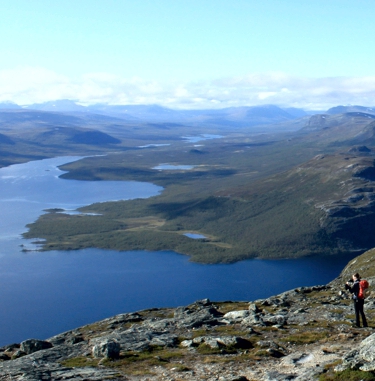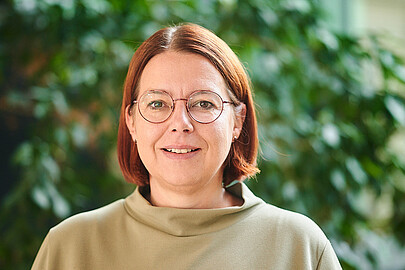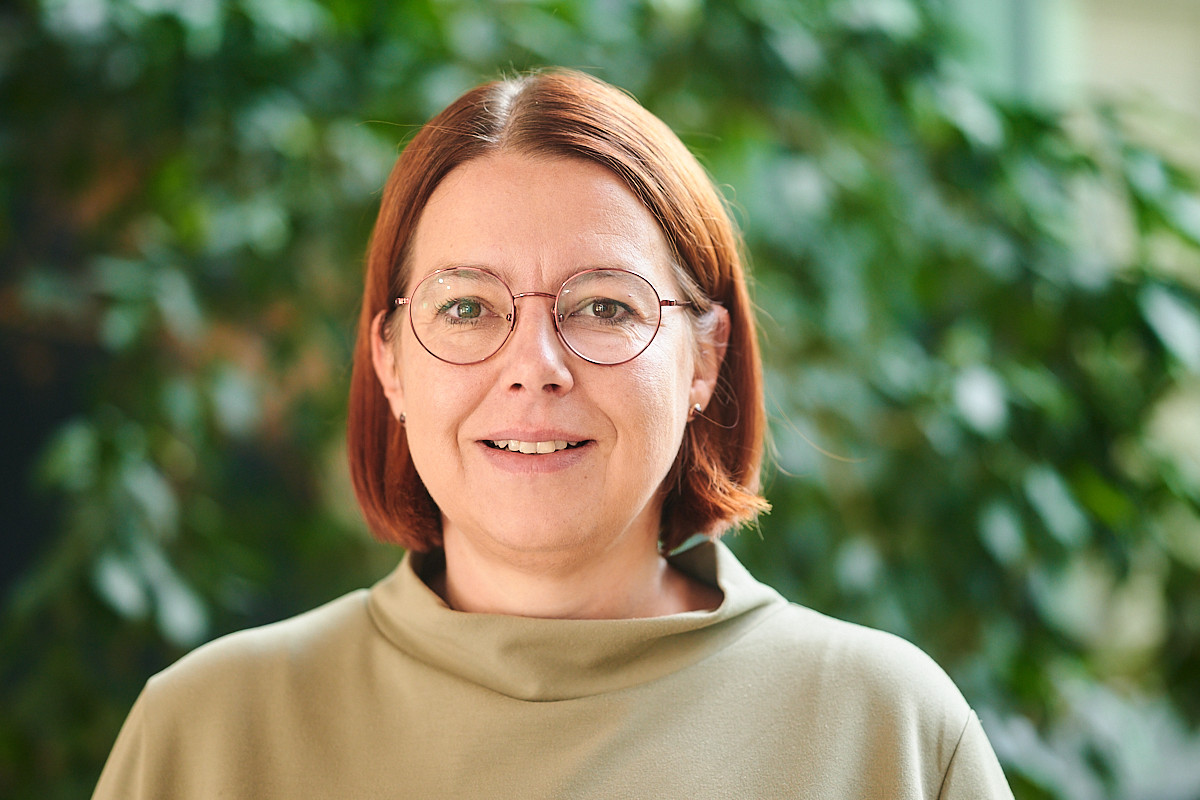


Understanding ecosystem processes in the landscape
Those who work in environmental protection, resource utilisation and resource conservation need to be able to understand and get to grips with a variety of issues, and also demonstrate a high degree of flexibility in the use of suitable methods and creativity in developing problem-solving strategies. The Master's programme in Landscape Sciences transcends the traditional boundaries between the different disciplines and equips its students with a universal understanding of systems theory. Building on these foundations, you will learn to analyse and model the processes taking place in the landscape and use the results to design solutions for today’s land use and environmental problems and concepts for future management strategies.
-
Interdisciplinary programme with a strong practical focus
The Faculty of Natural Sciences has brought together closely related disciplines which study ecological and landscape-related issues to create an interdisciplinary teaching programme incorporating elements which cross-link the various disciplines, and university and real-life applications, too. The subject matter dealt with in the Master’s programme is broadly based and covers a wide range of systems; it focuses on the analysis and prediction of processes taking place in the landscape and the application of sound scientific methods and models. Investigations focus on the boundary between atmosphere-vegetation-soil-rock, the processes taking place therein and the control options available to us humans. The programme forges a link between the scientific and ecological basic principles and professional fields of application. The students are thus equipped with both a sound understanding of the environmental system and the advanced methodological skills needed to analyse the processes occurring in the ecosystem.
-
Learning outcomes
The experts educated and trained on the Master's programme in Landscape Sciences are expected to have detailed knowledge of the specialist scientific content, and methodological skills in particular, to thus be able to utilise their broad understanding of the system in the analysis and modelling of processes occurring in the landscape, and then take this as the foundation for developing solutions for today’s land use and environmental problems and concepts for future management strategies.
The students will be taught the key skills required for this in a wide variety of ways. The broad-based training is directed towards seven learning outcomes and is the ideal preparation to meet the increasing demands that practical applications are placing on methodological competence and detailed knowledge. Moreover, the applied landscape sciences component will provide students with optimum training in integrated thinking, an absolute ‘must’ in this field, regardless of their research focus, compulsory optional subjects and Master thesis. -
Double Degree programme
Double Degree in cooperation with Yamagata University in Tsuruoka, Japan
The Faculty of Natural Sciences at Leibniz Universität Hannover has teamed up with the Graduate School of Agricultural Sciences at Yamagata University in Tsuruoka, Japan to offer a Double Degree programme. A maximum of five students per year have the opportunity to study for an M.Sc. in Landscape Sciences at Leibniz Universität Hannover and an M.Ag. in Agricultural Sciences at Yamagata University in parallel over four semesters.
How to apply for the programme
You are applying for the Master of Landscape Sciences programme at Leibniz University Hannover and at the same time indicate that you are interested in the double degree programme with Yamagata University. However, failure to provide this information does not mean that you will be excluded from the allocation of places on the programme. You must also prove that you have sufficient knowledge of English at language level B2. The language certificate should be submitted no later than the official application for the double degree programme.
After enrolment on the Master's degree programme in Landscape Sciences, students are selected for the double degree programme in an internal procedure during the winter and summer semesters. Application deadlines are 30 November for the following summer semester and 30 April for the winter semester.
Studying in the Double Degree programme
As a student on the Double Degree programme of the four-semester Master’s programme, you will spend two semesters at Leibniz Universität Hannover and two semesters at Yamagata University in Tsuruoka. You will obtain 60 credits at each university. You are enrolled at Leibniz Universität for the complete duration of your studies. You are exempt from the tuition fees payable at the Japanese partner university.You will complete the first semester in Hanover and take compulsory and compulsory elective modules on the Master's degree programme in Landscape Sciences totalling 30 credit points in German or English. You will then continue your studies at Yamagata University. The courses at the Japanese partner university, totalling 60 credit points, are all offered in English. You will complete the final fourth semester back in Hanover. In this semester, you will write your Master's thesis worth 30 credit points, which will be jointly supervised by a lecturer from the M. Sc. Landscape Sciences and M. Ag. Agricultural Sciences programmes.
As a graduate of the double degree programme, you will earn degrees in the two accredited Master's degree programmes in four semesters:
‘M. Sc. in Landscape Sciences’ from Gottfried Wilhelm Leibniz Universität Hannover
‘M. Ag. in Agricultural Sciences’ from Yamagata University
Advantages of the Double Degree
The combination of the Master's degree programme in Landscape Sciences at the University of Hanover and the Master's degree programme in Agricultural Sciences offers many advantages:
- A new and challenging study and research environment
- Familiarisation with a different study system
- Obtaining two Master's degrees in four semesters
- Expansion of professional career opportunities
- Development of social and intercultural skills in an international environment
- Intensive familiarisation with the culture and way of life of the host country
Please send enquiries for consultations and your application to:
Alexander Störmer
E-mail: stoermer@phygeo.uni-hannover.de
Phone: +49 511 762 18890Yamagata University - Graduate School of Agricultural Sciences in Tsuruoka
The main fields of study on the Tsuruoka campus of Yamagata University (YU), which is situated in the north-east of Honshu, Japan’s main island, are agriculture, forest sciences and environmental sciences. This creates a great many interfaces to the subjects taught and studied at the Faculty of Natural Sciences at Leibniz Universität Hannover (LUH), especially in the landscape sciences.
LUH and YU have been in close collaboration since 2012, working together on joint research projects, the exchange of students and doctoral researchers, and regular summer schools in Germany and winter schools in Japan.
Course structure
The master course is modular in structure: Thematically related courses, e.g. lectures, seminars, experimental exercises and internships, can be combined into one module. The modules are assigned credit points (LP) according to the European Credit Transfer System (ECTS).
Credit points reflect the average time spent on course attendance, self-study and exam preparation required to pass the module. An LP/ECTS is awarded for an average workload of 30 hours. As a rule, 30 LPs/ECTS are acquired in one semester. The Master's programme comprises a total of 120 credit points (LP/ECTS). It consists of compulsory and required elective modules.
Module catalogue
Module catalogue [PDF]
The Master's programme in landscape sciences is designed as a full-time course with compulsory attendance. Detailed information on the individual modules can be obtained from the module catalogue.
Completing your degree and career prospects
Formalities and regulations
The regulations appertaining to the organisation and administration of a degree programme and its examinations are described and laid down so as to be legally binding in the examination regulations (PO). They regulate the examination requirements and the procedure to be followed. They specify which modules involve examinations and course work as well as the number and type of examinations.
They also contain stipulations on the time allowed to prepare final theses. The examination regulations lay down which information has to be provided when registering for an exam; whether documentary proof has to be submitted and if so, what is needed; the time frame for holding repeat examinations, and what the procedure is when examinations are missed.
Participating institutions and their people
Programme coordination and academic advice
Programme coordinator


30419 Hannover
Thu. 13:00 - 14:00
and by appointment







